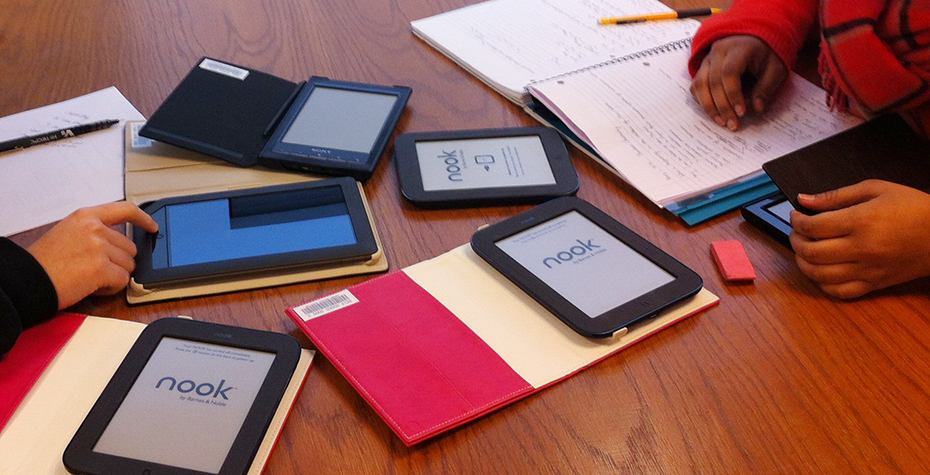What Drives Use and Acceptance of eBooks at Undergraduate Institutions?

Conventional wisdom holds that the availability of ebooks and their inherent utility–full text searchability, ease of access, and more–are what drive use and acceptance. A new whitepaper by Wellesley's Deborah Lenares, manager of acquisitions and resource sharing, and former Preservation Librarian Steven Smith, investigates whether availability and utility are the only factors behind the rate of adoption of ebooks at undergraduate institutions.
The paper draws on past studies and a new survey of Wellesley College users to uncover some interesting insights for undergraduate librarians and institutions. The new survey, conducted in January 2012, was sent to nearly 3,000 students, faculty, and staff members, and received more than 1,600 responses.
The results revealed that 73 percent of faculty and 70 percent of students reported having used an ebook. Comparing this against 2007 Wellesley-use data, the number of unique titles accessed jumped by 40 percent. While the availability of ebooks has certainly increased, which could explain the jump, the researchers found that the total pages viewed also increased (by 184 percent) and the number of pages printed dropped by 11 percent. The indication is that the increased adoption of ebooks as a result of availability and convenience is only part of the story.
The study also revealed that faculty are more likely to own, or plan to purchase, a reading device for ebooks. Nearly half (45 percent) of student responders indicated that they have no plans to purchase a reading device. Those who do own a device are far more likely than those who do not to read a full chapter from an ebook, if not an entire ebook, which the researchers say suggests the idea that wider device ownership or usage could unlock a much larger adoption of ebooks.
The authors conclude, “Results from the survey seem to show that faculty have a slightly higher acceptance of ebooks, and students a slightly higher preference for print books. We also find that faculty at Wellesley are much more likely than students to either own or plan to purchase a mobile device, particularly tablets. By analyzing responses from those who own or plan to purchase a mobile device we can further clarify this difference in format preference.”
Wellesley College faculty and students have access to a diverse and extensive collection of contemporary scholarly ebooks through the Margaret Clapp Library. The Clapp Library began collecting ebooks in 2003. In 2009, the library implemented a large-scale patron driven acquisition program, again including a wide range of recently published titles from academic presses. Today, the library licenses ebooks as individual titles and in large collections, providing access to over 400,000 ebooks on several different platforms with many differences in functionality, such as the ability to download, limitations on printing, or specific software requirements.
The paper, which was published by Springer Science+Business Media, is available through Springer’s website: www.springer.com.
